CINEMA, COLONIALISM,
POSTCOLONIALISM
Perspectives from the French
and Francophone World
EDITED BY DINA SHERZER

UNIVERSITY OF TEXAS PRESS, AUSTIN
COPYRIGHT 1996 by the UNIVERSITY OF TEXAS PRESS
All rights reserved
Printed in the United States of America
First edition, 1996
Requests for permission to reproduce material from this work should be sent to Permissions, University of Texas Press, Box 7819, Austin, TX 78713-7819
utpress.utexas.edu/index.php/rp-form
LIBRARY OF CONGRESS CATALOGING-IN-PUBLICATION DATA
Library ebook ISBN: 978-0-292-76119-3
Individual ebook ISBN: 978-0-292-78759-9
DOI: 10.7560/777026
Cinema, colonialism, postcolonialism : perspectives from the French and francophone world / edited by Dina Sherzer.
p. cm.
Includes bibliographical references and index.
ISBN 0-292-77703-5 (pbk. : alk. paper)
1. Motion picturesFrance. 2. Motion picturesFranceColonies. 3. Motion picturesPolitical aspectsDeveloping countries. 4. Imperialism in motion pictures. I. Sherzer, Dina.
PN1993.5.F7C4788 1996
791.430944dc20 95-46592
CONTENTS
Dina Sherzer |
Imperial Frame: Film Industry and Colonial Representation
Martine Astier Loutfi |
Split Screens: La Maison du Maltais as Text and Document
Steven Ungar |
Whither the Colonial Question? Jean Renoirs The River
Nandi Bhatia |
Regarding Rouch: The Recasting of West African Colonial Culture
Paul Stoller |
Le Colonial Fminin: Women Directors Interrogate French Cinema
Catherine Portuges |
Empire as Myth and Memory
Naomi Greene |
Filmic Memorial and Colonial Blues: Indochina in Contemporary French Cinema
Panivong Norindr |
Third Cinema or Third Degree: The Rachid System in Serge Meynards LOeil au beur re noir
Mireille Rosello |
Decolonizing Images: Soleil O and the Cinema of Med Hondo
Madeleine Cottenet-Hage |
Post-Tricolor African Cinema: Toward a Richer Vision
John D. H. Downing |
Race Matters and Matters of Race: Interracial Relationships in Colonial and Postcolonial Films
Dina Sherzer |
I wish to thank the authors in this volume, several of whom participated in the Cinema and Colonialism sessions that I organized at the 1993 and 1994 International Colloquia on French Studies. I am indebted to all the contributors for their continued interest in and commitment to this project, their excellent papers, and their valuable comments and information. The University of Texas University Research Institute provided a small grant to assist in the preparation of the manuscript. The director of the University of Texas Press, Joanna Hitchcock, and the humanities editor, Ali Hossaini, encouraged this project from its inception and provided support all the way through. Joel Sherzer provided intellectual and technical support.
Reflecting on anthropological writings, Clifford Geertz quotes James Clifford, the metaethnographer, as Geertz calls him: What has become irreducibly curious is no longer the other but cultural description itself. This collection of essays is very much in the mode of such studies. It deals with a rich topic composed of multiple realities, past and present, involving France and its colonies, multiethnic contemporary France, and cinematic discourses that have been and are being produced about these realities. More specifically, these essays examine how French cinema has represented the encounter and cohabitation of French individuals and various Others during the colonial era, how French cinema is currently imagining and refiguring Frances colonial past, and how it renders and comes to terms with the cohabitation of individuals from the former colonies and French individuals in France. As such, this book is a contribution to postcolonial research, but it also goes beyond that to include another aspect of postcolonialism by offering analyses of films by directors from the former colonies who give their own representation of colonialism and their own presentation of their culture, so that now it is with the lens of the Other that images are constructed.
Resolutely postmodern, these essays interrogate and analyze images of the past and of the present, examine how the images signify, and point out the underlying assumptions behind them and their relationship to historical and cultural facts. Some of the issues raised include: What were the components of the colonial imagination? How was and is the Other represented? What is the nature of the images shown on the screen? What of the past is represented, history or memory? What constructions have been elaborated about the Empire and the metropolis at the time of colonization and after decolonization? What discursive contexts allowed and enabled such cultural constructions to emerge? How are colonial wars represented? Several authors discuss how the films participated in the creation and maintenance of the cultural hegemony of France. Others note the ambiguous messages of the recent films set in the colonies that display an uncanny nostalgia for the Empire. The authors dealing with films set in contemporary France document how the films they discuss participate in the ongoing debate about identity and ethnicity. And the authors who present Francophone cinema document how the Empire writes back, as it were, and bring to the fore the powerful messages of films that intertwine the colonial past with various aspects of African culture that are not often known to the general public.
The scholars who have contributed to this volume are specialists in film studies and teach film at their respective institutions. Their essays reflect their expertise, in that they not only focus on the content of the films but also take into account how narrative and cinematographic techniques such as lack of plot, episodic structure, mise-en-scne, and lighting participate in the creation of meaning. They also pay attention to intertextual relationships that might exist between the films and novels or sociological and cultural documents. In addition, these scholars bring to bear issues of distribution, reception, and spectatorship, which are relevant in that they determine who can make films, who sees them, and how spectators are manipulated to react in specific ways to crucial issues of gender, ethnicity, and identity.
A brief overview of colonialism and the history of cinematic productions in France from 1895 to the present will help to identify the historical context in which the films were made. In a nutshell, here is the story. From the beginning of the twentieth century to World War II, there was not much interest in the colonies on the part of directors, because of the expense involved in filming far away and because of the lack of interest among the French public. When nationalisms began to rise after World War II, during the colonial wars and the period of decolonization (19451962), issues related to the colonies were not judged to be appropriate topics for films and would have been censored. Immediately and for several years after decolonization (19621975), a reluctance set in that prevented directors from looking outside French borders. Only since the mid-1970s has France dared to examine its colonial past.
These exotic distant lands were a source of profit and contributed to the strength and power of the metropolis. But anticolonial resistance began to be felt as the two societies, one of which oppressed the other, engaged in contact and confrontation and as asymmetries became more and more marked. In the year 1895 Louis Lumire made his first films, and already by 1900 his cameramen brought back documentaries from the colonies. Georges Mliss 1902 film

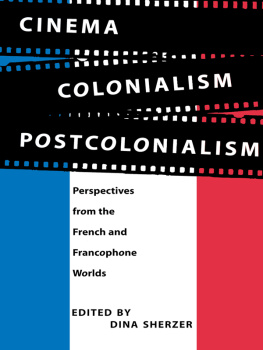

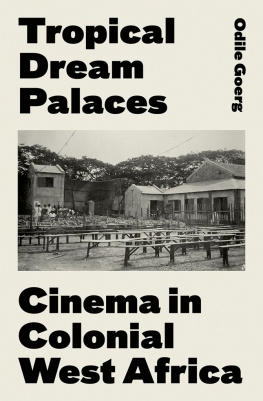


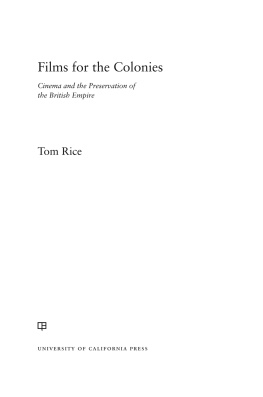
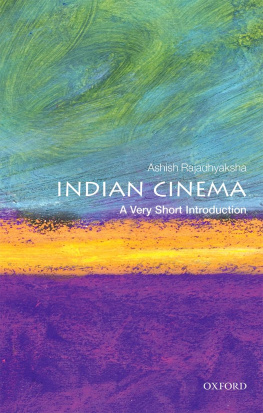
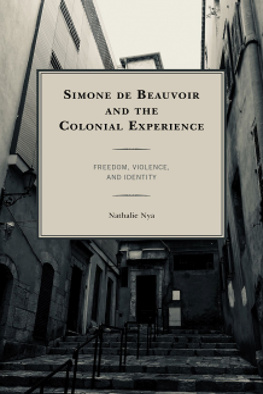

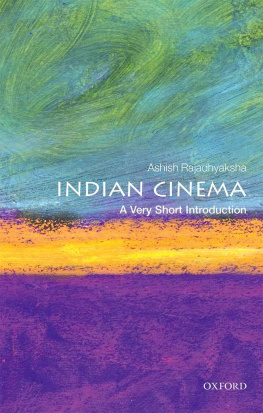
 UNIVERSITY OF TEXAS PRESS, AUSTIN
UNIVERSITY OF TEXAS PRESS, AUSTIN